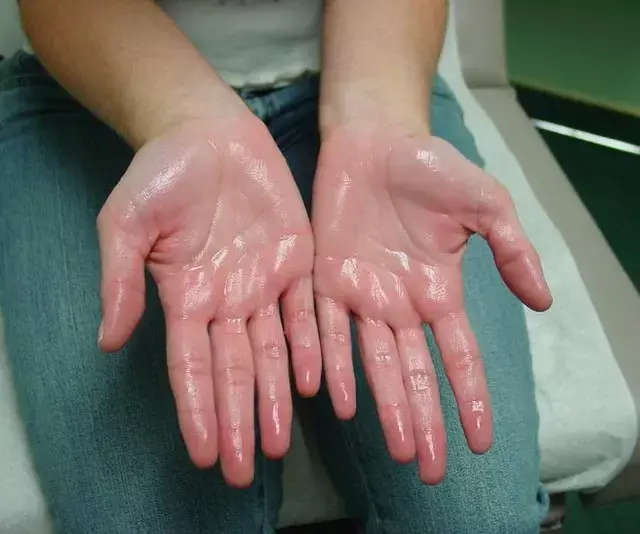- Home
- Medical news & Guidelines
- Anesthesiology
- Cardiology and CTVS
- Critical Care
- Dentistry
- Dermatology
- Diabetes and Endocrinology
- ENT
- Gastroenterology
- Medicine
- Nephrology
- Neurology
- Obstretics-Gynaecology
- Oncology
- Ophthalmology
- Orthopaedics
- Pediatrics-Neonatology
- Psychiatry
- Pulmonology
- Radiology
- Surgery
- Urology
- Laboratory Medicine
- Diet
- Nursing
- Paramedical
- Physiotherapy
- Health news
- Fact Check
- Bone Health Fact Check
- Brain Health Fact Check
- Cancer Related Fact Check
- Child Care Fact Check
- Dental and oral health fact check
- Diabetes and metabolic health fact check
- Diet and Nutrition Fact Check
- Eye and ENT Care Fact Check
- Fitness fact check
- Gut health fact check
- Heart health fact check
- Kidney health fact check
- Medical education fact check
- Men's health fact check
- Respiratory fact check
- Skin and hair care fact check
- Vaccine and Immunization fact check
- Women's health fact check
- AYUSH
- State News
- Andaman and Nicobar Islands
- Andhra Pradesh
- Arunachal Pradesh
- Assam
- Bihar
- Chandigarh
- Chattisgarh
- Dadra and Nagar Haveli
- Daman and Diu
- Delhi
- Goa
- Gujarat
- Haryana
- Himachal Pradesh
- Jammu & Kashmir
- Jharkhand
- Karnataka
- Kerala
- Ladakh
- Lakshadweep
- Madhya Pradesh
- Maharashtra
- Manipur
- Meghalaya
- Mizoram
- Nagaland
- Odisha
- Puducherry
- Punjab
- Rajasthan
- Sikkim
- Tamil Nadu
- Telangana
- Tripura
- Uttar Pradesh
- Uttrakhand
- West Bengal
- Medical Education
- Industry
Patients with primary hyperhidrosis may most commonly have sensitive skin: Study

A new study published in the Journal of Drug and Dermatology found that any person with primary hyperhidrosis is more likely than the general population to have sensitive skin even in places where excessive perspiration is not present. The most prevalent eccrine gland illness, primary hyperhidrosis (PHH), is characterized by excessive perspiration brought on by increased sympathetic activation, which negatively affects quality of life. The patients with excessive perspiration on one or more eccrine-rich body parts that is symmetrical, absent during sleep, and interferes with everyday activities for more than 6 months are clinically diagnosed with PHH. In physiologic sweating, the eccrine sweat gland is activated by sympathetic transmission, which causes the hypothalamus to receive retrograde negative input.
Even though the eccrine glands in PHH are normal in size, number, and histologic appearance, the overstimulation of cholinergic receptors on sweat glands and increased efferent transmission are caused by unbalanced sympathetic signaling. Neurosensory dysfunction also causes sensitive skin (SS), which is characterized by cutaneous hyperreactivity to normally harmless stimuli that cannot be linked to an underlying skin problem. An estimated 40% to 70% of people worldwide are thought to have SS, which is characterized by itching, burning, tightening, or stinging feelings. While the pathogenesis of SS is unknown, perspiration, stress, and high temperatures are recognized exacerbators of the condition which indicates the cholinergic activation which may contribute to symptom flares. Thus, this study was to survey PHH patients in order to evaluate the burden of SS and hyperhidrosis (HH).
The International Hyperhidrosis Society distributed a survey exempt from the International Review Board (IRB). Random forest machine learning methods were used to create a predictive classification model for SS. HH and SS severity levels were significantly correlated, with 89% of the 637 respondents with PHH reporting SS. SS happened on both HH-affected and HH-unaffected body locations. Sensitive Scale-10 (SS-10), a validated questionnaire to measure SS severity, was shown to be the most useful in predicting SS in this cohort using predictive modeling.
Overall, these findings suggest and validate a connection between SS and HH. Despite it also happened on unaffected body locations, SS was most common in HH-afflicted sites by indicating that sweat is not the only cause. Cholinergic signaling may be investigated in future to rule out the connection between these disorders.
Reference:
McCormick, E. T., Min Choi , J., Abdel Azim, S., Whiting, C., Pieretti, L., Zhang, L., & Friedman, A. (2024). Primary Hyperhidrosis and Sensitive Skin: Exploring the Link with Predictive Machine Learning-Based Classification Models - JDDonline - Journal of Drugs in Dermatology. 2024. https://doi.org/10.36849/JDD.8461
Neuroscience Masters graduate
Jacinthlyn Sylvia, a Neuroscience Master's graduate from Chennai has worked extensively in deciphering the neurobiology of cognition and motor control in aging. She also has spread-out exposure to Neurosurgery from her Bachelor’s. She is currently involved in active Neuro-Oncology research. She is an upcoming neuroscientist with a fiery passion for writing. Her news cover at Medical Dialogues feature recent discoveries and updates from the healthcare and biomedical research fields. She can be reached at editorial@medicaldialogues.in
Dr Kamal Kant Kohli-MBBS, DTCD- a chest specialist with more than 30 years of practice and a flair for writing clinical articles, Dr Kamal Kant Kohli joined Medical Dialogues as a Chief Editor of Medical News. Besides writing articles, as an editor, he proofreads and verifies all the medical content published on Medical Dialogues including those coming from journals, studies,medical conferences,guidelines etc. Email: drkohli@medicaldialogues.in. Contact no. 011-43720751


